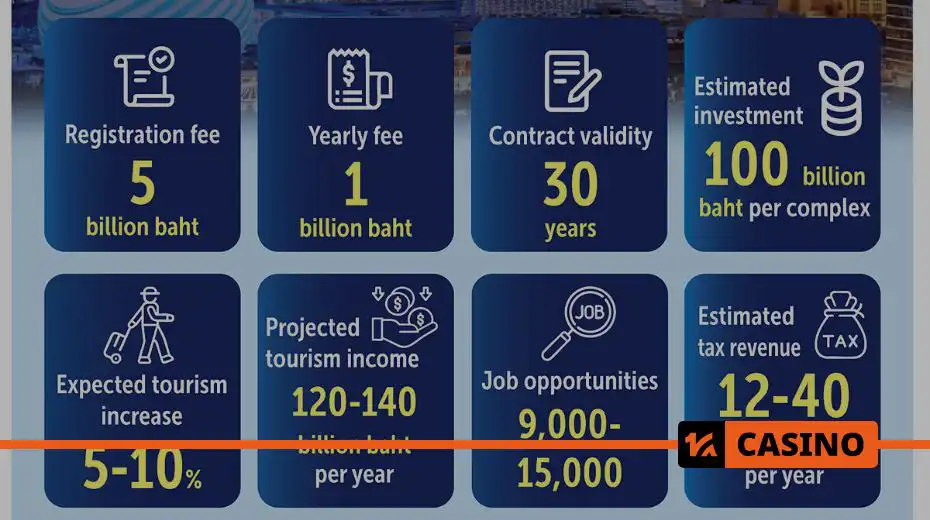Plans for casino construction in Thailand: a new vector for the tourism industry
Gambling has long been banned in Thailand, despite strong local interest in the industry. However, the government has taken a decisive step toward legalizing casinos, aiming to attract more tourists and strengthen the national economy.
In recent years, Thailand’s tourism sector has faced significant challenges due to the pandemic and declining revenues. Authorities are now actively looking for ways to recover losses, and legalizing the gambling business may be a key solution.

Where will casinos be built?
The project involves the construction of several entertainment resorts featuring casinos. These will be located in cities with well-developed tourism infrastructure:
- Bangkok – the capital and economic hub of Thailand.
- Pattaya – a popular resort city known for its nightlife.
- Phuket – an island destination favored by affluent tourists.
- Chiang Mai – a cultural and historical center in northern Thailand.
The government has assured that casinos will occupy only 3–5% of each resort’s area. The rest will be dedicated to luxury hotels, shopping centers, restaurants, water parks, spa zones, and conference halls. This approach is meant to avoid creating “gambling ghettos” and make the projects attractive to a broad range of travelers.
Economic Impact and Investments
According to forecasts, the creation of casino resorts will increase tourism revenue to $6.32 billion per year, nearly doubling the current figures. The projects are expected to attract large private investors, who will develop the casinos on state-owned land.

Additional Benefits:
- Job creation. A single complex is expected to employ up to 30,000 people during construction and about 15,000 in operation.
- Higher tax revenues. Casino operators will be required to pay substantial fees for licenses and taxes on their earnings.
- Increased tourist flow. With the introduction of casino resorts, Thailand could compete with Macau and Singapore, attracting gambling enthusiasts from around the world.
Challenges and Criticism
Despite the apparent economic advantages, the idea has received mixed reactions. Some members of parliament argue that such projects could lead to increased crime, gambling addiction among locals, and the expansion of the underground gambling sector.
There is also concern that casino legalization does not align with Thailand’s traditional tourism model, which focuses on beach vacations, cultural heritage, and eco-tourism. However, officials insist that access to gambling venues will be restricted for Thai citizens, with the main visitors expected to be wealthy foreigners.
When Will the First Casinos Open?
According to recent statements, Thailand’s first casino resort could open as early as 2029. If the project is completed on schedule, the country could secure a strong position in the Asian gambling market, competing with Macau, the Philippines, and Vietnam.

Regulatory questions remain, including which agency will oversee the gambling industry, what tax rates will be introduced, and how player protection will be ensured. One thing is clear—if the government manages to implement the system effectively, this initiative could become a game-changer for Thailand’s economy.
Source: Bangkok Post



Comments
No comments yet